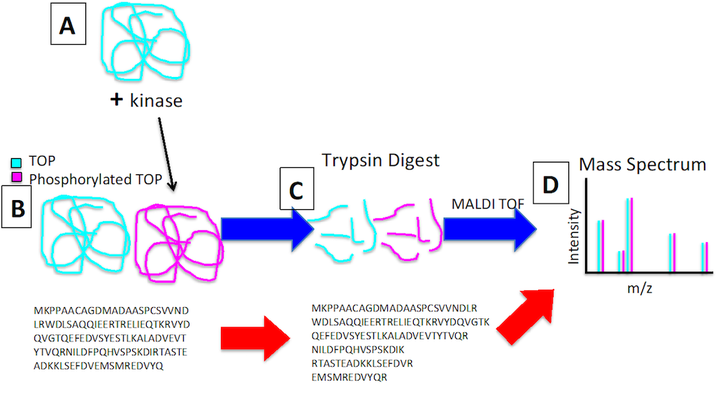Wellesley: Prostate Tumor Cell Proliferation

Throughout my first three years at Wellesley College, I was member of Professor Wolfson’s Lab which studies prostate cancer. My first independent project after shadowing older member of the lab for a year, in spring 2012, was to learn aseptic cell culture techniques to confirm our prostate cancer cell lines responded appropriately to androgens. My second project through 2013 and 2014 involved phosphorylating a protein known to play a critical role in prostate cancer with a kinase, separating via 2D SDS-PAGE, and performing an in gel trypsin digest to identify the phosphorylation shift using Matrix Assisted Laser Desorption/Ionization Time of Flight (MALDI-TOF). I concluded that it was possible to self phosphorylated TOP and confirm this phosphorylation by separation on an IEF strip. However, due to phosphate group impacting the ionization for MALDI-TOF and resulting in a reduced signal, this phosphorylated 80 Da shift has yet to confirmed by mass spectra. Throughout my three years, I presented my results in poster sessions at Wellesley College as part of our annual Tanner and Rulhman Conferences.